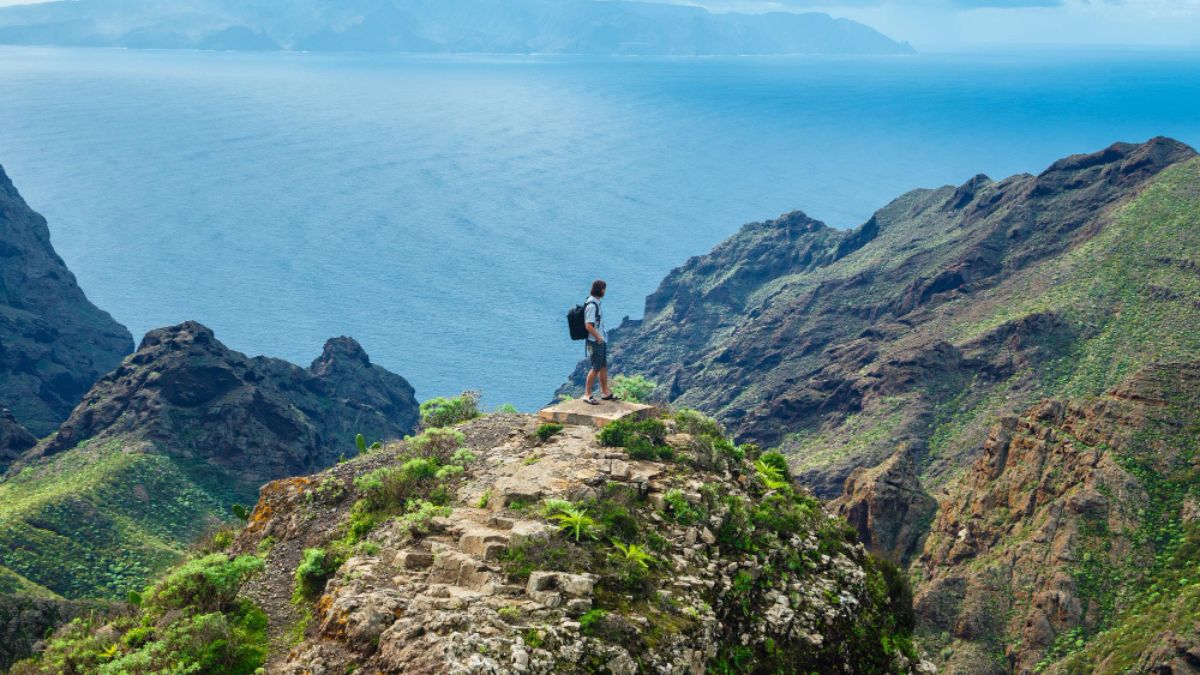Uncategorized
Noodlemagazine: How to Download

NoodleThe magazine is a treasure trove of creativity, inspiration, and knowledge. With its captivating articles and stunning visuals, it’s no wonder that readers are eager to keep their favorite issues close at hand. Imagine being able to dive into your go-to reads anytime you want—whether you’re lounging on the couch, commuting to work, or relaxing at a café. Downloading your favorite issues from Noodle Magazine not only allows for easy access but also enriches your reading experience.
If you’ve been wondering how to download from NoodleMagazine, you’re in luck! This step-by-step guide will walk you through the entire process effortlessly. Say goodbye to searching endlessly for Wi-Fi or flipping through countless pages online; it’s time to make those cherished issues available offline! Let’s get started on this journey toward convenient reading bliss.
Why Downloading Issues is Beneficial
Downloading issues from NoodleMagazine offers unmatched accessibility. You can read your favorite articles on the go without needing an internet connection. This is especially handy during commutes or while traveling.
Moreover, having a downloaded copy means you can revisit timeless content whenever you want. There’s something satisfying about flipping through pages of a magazine that digital views can’t replicate.
Another benefit is customization. You can organize your downloads according to themes or interests, making it easy to curate a personal library of valuable insights and inspiration.
Downloading reduces screen fatigue. Enjoying beautifully designed layouts in print-friendly formats provides a refreshing break from screens while still keeping you engaged with quality content.
Step 1: Create a NoodleMagazine Account
Creating a noodlemagazin account is the first step in accessing your favorite issues. This process is simple and quick. Just head over to the Noodle Magazine website.
Look for the “Sign Up” option, usually located at the top right corner of the homepage. Click on it to start.
You’ll be prompted to fill in some basic information like your name, email address, and a secure password. Make sure you choose something memorable but unique!
Once you’ve completed this form, check your email for a confirmation link from Noodle Magazine. Clicking that link will validate your account and get you ready to dive into all things noodle-related.
After that, you’re just moments away from downloading those exciting issues!
Step 2: Browse and Select Your Favorite Issues
Once you’ve created your Noodle Magazine account, it’s time to dive into the treasure trove of content. The magazine offers a wide array of issues covering diverse topics that cater to various interests.
Navigate through the vibrant interface and take advantage of the search feature. You can filter by genre, date, or popularity, making it easy to find exactly what you’re looking for.
As you browse, pay attention to engaging cover designs and enticing headlines that catch your eye. Each issue provides a brief description that gives insight into its unique themes and articles.
Bookmark any issues that pique your interest for later review. This way, you can create a shortlist before making your final selection—ensuring you don’t miss out on anything amazing!
Step 3: Click on the Download Button
Once you’ve selected your favorite issue, it’s time to bring it into your digital library. Look for the prominent download button, usually located near the article description or cover image.
This button is your gateway to enjoying high-quality content offline. A simple click initiates the download process, and you’ll feel a rush of excitement knowing that soon you’ll have this gem at your fingertips.
Make sure you’re connected to Wi-Fi for a smooth experience. Depending on your device and internet speed, the download should be completed in just moments.
Don’t be surprised if a prompt appears asking where you’d like to save it—this is normal! Choose a location that’s easy for you to access later, ensuring that finding the downloaded issue will be hassle-free when you’re ready to dive in.
Step 4: Choose Your Preferred Format (PDF or EPUB)
When it comes to downloading your favorite issues from noodlemagazin, format selection plays a vital role. You have two popular choices: PDF and EPUB.
PDFs are perfect for preserving the magazine’s layout and design. They look great on desktops and are easy to navigate with bookmarks. If you appreciate visual fidelity, this might be your go-to option.
On the other hand, EPUB files offer flexibility. They adapt beautifully across various devices, like e-readers or smartphones. If you prefer adjustable text size for better readability, EPUB is ideal.
Consider where you’ll read the content most often before making your choice. Both formats serve their purpose well but cater to different reading experiences. Choose what aligns best with how you enjoy consuming content!
Step 5: Enjoy Your Downloaded Issue Anytime, Anywhere!
Once your issue is downloaded, the real fun begins. You can dive into captivating articles and stunning visuals at your leisure.
Whether you’re lounging on the couch, commuting to work, or waiting for an appointment, your favorite Noodle Magazine issues are now just a click away. The beauty of having them in digital format means they fit perfectly on devices like tablets and smartphones.
Engage with content that sparks inspiration whenever you want. There’s no need for an internet connection once you’ve hit download. Just open the file and immerse yourself in innovative ideas and thought-provoking stories.
Feel free to share insights from your reading with friends or even discuss key takeaways online. Your downloaded issues become not only personal treasures but also conversation starters wherever you go.
Tips for Managing Downloaded Issues on Different Devices
Managing your downloaded issues from NoodleMagazine across various devices can enhance your reading experience. First, ensure that you have compatible apps for viewing PDFs or EPUB files installed on each device. This will allow seamless access to your favorite content.
Organize downloads into dedicated folders. It makes finding specific issues much easier later, especially if you download frequently.
Syncing options are key for a cohesive experience. If you’re using cloud storage services like Google Drive or Dropbox, upload your files there to access them from any device without hassle.
Regularly back up important content. Whether it’s through email or an external hard drive, safeguarding your most cherished reads is always wise.
Check the compatibility of formats with different devices before downloading. Some older e-readers might not support all file types readily available on Noodle Magazine.
Conclusion
Downloading your favorite issues from Noodle Magazine opens up a world of convenience. With just a few clicks, you can access inspiring articles and stunning visuals anytime.
Whether you’re on the go or relaxing at home, having digital copies ensures that you never miss out on captivating content. Plus, with options like PDF and EPUB formats, there’s flexibility tailored to your reading preferences.
Managing downloaded issues across devices is straightforward too. Keep everything organized for easy access whenever inspiration strikes.
It’s all about making reading enjoyable and accessible. So dive into the vibrant world of Noodle Magazine and start downloading today!
FAQs
When it comes to downloading issues from noodlemagazin, many users have questions. Here are some of the most frequently asked ones:
What devices can I use to download noodlemagazin issues?
You can download issues on a variety of devices, including laptops, tablets, and smartphones. Just ensure you have a compatible app for reading PDFs or EPUB files.
Is there a cost associated with downloading issues?
Noodle Magazine offers both free and premium content. Check the specific issue for any costs incurred.
Can I read downloaded issues offline?
Yes! Once you’ve downloaded an issue, you can read it anytime without needing an internet connection.
How do I manage my downloaded issues?
To keep things organized, create folders based on topics or dates in your device’s storage system. This will help you find your favorite articles quickly.
Are updates available for previously downloaded magazine issues?
If there are updated editions or new articles related to previous downloads, you’ll need to check back on the site since updates aren’t automatically applied to existing downloads.
If you still have questions about how to download from NoodleMagazine that weren’t covered here, feel free to reach out through their support page or community forums. Happy reading!
Uncategorized
Unlock Your Brain’s Potential with Cosmic Nootropics

Are you looking to supercharge your cognitive abilities while saving big? Look no further! Cosmic Nootropic offers premium health-enhancing supplements to help you elevate your wellness and unlock your brain’s full potential. And guess what? With their exclusive deals, you get 10% off sitewide plus an extra 25% discount when you pay with cryptocurrency.
Let’s dive deep into why Cosmic Nootropic is your go-to platform for cognitive and physical enhancement and how you can maximize these incredible savings!
What Are Nootropics, and Why Do You Need Them?
The Science Behind Nootropics
Nootropics, often called “smart drugs,” are compounds designed to improve cognitive function, memory, and focus. Think of them as your brain’s best friend, helping you stay sharp in an increasingly demanding world.
Benefits of Nootropics
- Enhanced memory retention.
- Improved focus and concentration.
- Boosted energy levels.
- Reduction in stress and anxiety.
Who Can Benefit From Nootropics?
Whether you’re a student cramming for exams, a professional tackling tight deadlines, or just someone aiming for optimal brain health, nootropics are for you!
Why Choose Cosmic Nootropic?
Trusted Source for High-Quality Supplements
Cosmic Nootropic provides pharmaceutical-grade nootropics that are rigorously tested for quality and efficacy.
A Wide Variety of Products
From adaptogens to neuroprotectors, their inventory has something for everyone.
- Piracetam for memory enhancement.
- Phenibut for stress relief.
- Noopept for sharp focus.
Exceptional Customer Support
Their team of experts is always available to guide you in selecting the right product for your needs.
How to Save Big with Cosmic Nootropic Deals
Current Discounts Available
- 10% Off Sitewide: Use the coupon code SAVEMORE at checkout to enjoy a 10% discount on all products.
- Extra 25% Off with Crypto Payments: Paying with cryptocurrency? You get an additional 25% discount!
Step-by-Step Guide to Redeeming Discounts
- Visit cosmicnootropic.com.
- Add your favorite supplements to the cart.
- Use coupon code SAVEMORE at checkout.
- Choose cryptocurrency as your payment method to unlock extra savings.
Top Products to Try at Cosmic Nootropic
Piracetam
Piracetam is a powerful cognitive enhancer known for improving memory and learning abilities.
- Benefits: Better recall, improved focus, and enhanced mood.
- Ideal For: Students, professionals, and seniors.
Phenibut
Phenibut is your go-to nootropic for stress relief and anxiety management.
- Benefits: Promotes calmness and relaxation.
- Ideal For: People with high-stress jobs or anxiety issues.
Noopept
Noopept is a fast-acting nootropic that supports cognitive function and protects brain health.
- Benefits: Enhanced focus and neuroprotection.
- Ideal For: Those seeking long-term brain health.
Tips to Maximize Your Nootropic Experience
Start with the Right Dosage
Begin with a low dose and gradually increase it as needed.
Pair Nootropics with a Healthy Lifestyle
- Eat a balanced diet rich in brain-boosting foods.
- Stay hydrated.
- Get regular exercise.
Track Your Progress
Keep a journal to monitor how different nootropics affect your cognition and mood.
The Crypto Advantage: Why Pay with Cryptocurrency?
Paying with cryptocurrency not only gives you an extra 25% off but also ensures fast, secure, and hassle-free transactions. It’s a win-win situation!
How to Pay with Crypto
- Select cryptocurrency as your payment method.
- Follow the instructions to complete your transaction.
- Enjoy your enhanced savings!
Why Now Is the Best Time to Buy
Cosmic Nootropic’s exclusive deals won’t last forever! With 10% off sitewide and 25% off with crypto payments, this is the perfect opportunity to stock up on your favorite brain-boosting supplements.
Conclusion: Boost Your Wellness Today!
Elevating your cognitive and physical health has never been easier—or more affordable. Cosmic Nootropic offers high-quality supplements to help you unlock your full potential, all while saving big with their unbeatable discounts. Don’t miss out on this opportunity to invest in your health and wellness.
FAQs
- What are nootropics?
Nootropics are supplements designed to enhance cognitive function, memory, and focus. - How can I save money on Cosmic Nootropic?
Use the coupon code SAVEMORE for 10% off and pay with cryptocurrency for an additional 25% discount. - Are nootropics safe?
When used as directed, nootropics are generally safe. Always consult a healthcare professional before starting any supplement. - Can beginners use nootropics?
Absolutely! Start with beginner-friendly options like Piracetam or Noopept and adjust dosages as needed. - Why should I pay with cryptocurrency?
Paying with cryptocurrency unlocks an extra 25% discount, ensuring maximum savings.
Uncategorized
A Sherpa’s Perspective Climbing Island Peak

This Sherpa’s perspective on climbing Island Peak provides a special and thought-provoking view of high-altitude expeditions. Sherpas serve as the foundation of safe, successful, and enjoyable Himalayan ascents. And their involvement is more than a simple act of support — it is generations of tradition, a wealth of expertise, and an intimate knowledge of the mountains that have played a vital role in their lives.
Climbing Island Peak is a personal and professional quest for a Sherpa. Sherpas, born and raised in the treacherous yet stunning landscape of the Khumbu Region, are naturally acclimatized to extreme high-altitude environments. Their evolutionary changes to reside comfortably at such heights has offered them an advantage compared to other climbers and serves to make them irreplaceable when tackling climbs to high altitudes, such as Island Peak. But for Sherpas, the ultimate goal of the climb isn’t to reach the peak; it’s to make sure the whole team is safe and healthy. The focus is on ensuring that climbers acclimatise, are well-equipped and be able to cope with the physical and mental challenges of such strenuous ascents.
Sherpas are born and raised with an understanding of the mountain, where danger lies, and the conditions may change on high altitude. From establishing base camps to provisioning higher ones, their job is to do the logistics so the climbers can concentrate on their climb. Far more than a simple guide, the Sherpa is a decision-maker, someone who can weigh risks and respond quickly to emerging hazards.” They know the symptoms of altitude sickness and when climbers need rest or help, often averting serious health complications before they progress.
Island Peak is a very physical climb and yet the Island Peak route Sherpas are all business but friendly. They are impressively strong and resilient, most times loaded with heavy packs of climbing gear, food, and supplies heading up the mountain, alleviating the load for climbers. But it is their mental strength that matters just as much. Even when the climb is tough, Sherpas tend to keep their heads up, offering a shoulder to rest on and a constant positive support for climbers who may deal with fatigue or fear. They give voice to the mountain: hard, hardy, part of a bigger world.
Climbing Island Peak also allows Sherpas to share their culture and traditions with climbers from all over the world, all in the name of climbing. Although a guide and porter is key to the function of an expedition, Sherpas also bring with them a sacred life that attracts those they serve. This relationship to the Himalayas as a spiritual being is evident in their every step, which is often accompanied by prayers, rituals, and offerings to ensure safe passage. This intrinsic connection to the mountains brings another dimension to the climb, turning a mere mountaineering venture into a meaningful spiritual and cultural interaction.
In the end, a Sherpa’s view of climbing Island Peak encompasses responsibility, experience, and sacred respect for the mountains. Their role in an expedition surpasses the physical strength to take you up to a mountain, as they provide wisdom, security, and a sense of oneness for the entire team. By realizing back-foot, or coming, as those who summit Island Peak through their unyielding attitude, labors, and devotion to their endeavor in making the top possible, attaining the pinnacle, gives a profound importance for everyone concerned.
What Does a Sherpa Do in Island Peak Climbs
Sherpas are instrumental in the success of any ambitious high-altitude climb, especially on peaks like Island Peak. They do much more than help out between climbs—these people are critical to the safety, logistics, and success of the climb itself. At 6,189 meters tall, Island Peak is a challenging physical and technical ascent and Sherpas tackle these challenges like no one else! Their understanding of the terrain, weather patterns and how to acclimatize to heightened elevation enable them to guide climbers through one of the most unforgiving environments on Earth safely.
Island Peak difficulty The Sherpa’s job is to set up camps, carry heavy loads, guide climbers over technical sections, help climbers acclimatize, and offer psychological support. Aside from their physical strength and endurance, Sherpas also have a rich cultural experience with the mountains that they inhabit, often viewing their work as both a job and a spiritual endeavor. For climbers, Sherpas are mentors and guides who focus not only on logistics, but also on the group’s emotional state. With a thorough and nuanced understanding of the mountain, a guide would make critical decisions that directly effect the safety and success of the climb, often to the point where climbers can leave the details of a difficult ascent to the experts and devote their energy solely to reaching the summit knowing their guide has everything in hand.
The Journey of a Sherpa: Training and Experience
Understanding a Sherpa’s journey in high-altitude mountaineering is a product of years of training, persistence, and lessons learned through experience. Sherpas are accustomed to the rugged, high-altitude environment at a young age as they live in the Khumbu region in Nepal, which allows them to become expert mountaineers. Training for the arduous work of climbing is often undertaken from a young age, as many Sherpas learn to carry heavy loads and traverse the challenging landscapes of the Himalayas at an early age. WITH TIME, they hone those abilities, practicing on progressively challenging climbs.
Training often includes learning technical climbing skills, understanding the use of tools like ice axes, crampons, and ropes, and mastering glacier navigation. Sherpas also acquire valuable experience in risk management as they negotiate unpredictable weather, technical risks, and altitude risks. They know what altitude sickness looks like, when to rest or descend and set the correct tempo to avoid climbers becoming exhausted. The years climbing give Sherpas physical fitness and mental toughness to work under such extreme conditions. With this extensive training and experience, they serve as invaluable support staff for climbers on expeditions, including Island Peak, ensuring climbers are safe while providing high-quality climbing experiences.
How to Prepare for the Island Peak Climb: A Sherpa’s Perspective
From a Sherpa perspective going peak-up Island Peak preparation goes beyond physical training ji that are the one-way meticulous process planning, recent with logistical needs, checks mental state readiness A lot of time is spent preparing gear, establishing base camps and making sure they have all the supplies readily available before the actual climb commences. This encompasses the coordination of food, water, climbing supplies, and making sure that higher camps are set up with what is needed to support climbers at every point of the journey.
Climbs are also very special in Sherpa traditions with high value on acclimatization. Understanding the difficulties of altitude, they will shepherd climbers on an itinerary that permits the slow accumulation of altitude, giving climbers’ bodies time to acclimatize to the thinning air. This process is vital in order to avoid altitude sickness, that would be deadly at Island Peak high altitudes. For Sherpas, the climb isn’t only about getting to the top; it’s about making sure everyone involved, including those clambering up the mountain, has a safe, comfortable and successful experience. They are deeply aware of what is going on in the mountain environment and they have organizational and logistical skills that can not be replaced in the face of any expedition.
A Sherpa’s View on the Meaning of Acclimatization
One of the most important parts of any high altitude climb is acclimatization, especially for Himalaya peaks like Island Peak. From a Sherpa’s point of view, this process is necessary for the climbers’ safety — and success. Sherpons are born and bred to work well at high altitudes, and they understand the adverse effects of altitude sickness, and why it would be wise to sufficiently acclimatize yourself before continuing your climb. Based on their experience, they plan the ascent to be sure the climbers get to rest and acclimatize to the higher altitudes, often spending the night at lower camps and doing acclimatization hikes before moving up to the higher camps.
Island Peak permits 18) Sherpas expertise in spotting early signs of altitude sickness in climbers like headaches, dizziness, nausea, and they also know that once symptoms worsen, you must descend immediately. They are very gradual, there’s plenty of water, and, more than anything, you give people time on the mountains for their body to acclimatize to the altitude. Sherpas also show climbers how to listen to their bodies and wise decisions about pacing. By making sure that climbers properly acclimatize, Sherpas minimize the risk of life-threatening syndromes like high-altitude pulmonary edema (HAPE) and high-altitude cerebral edema (HACE), both of which are seen more commonly in peaks like Island Peak. For a Sherpa, the health and safety of climbers is of the utmost importance, and they recognize that successful summits have as much to do with acclimatization as they do with physical strength.
Traversing the Ground: Sherpas as Navigators
Island Peak is known for its technical challenges and should not be underestimated; steep ice walls and precarious rock ridges follow, and even the weather is unpredictable. No one else has this knowledge of the terrain, keeping climbers on the safest, most efficient path. Their intimate knowledge of the mountain enables them to avoid hazardous areas, like avalanche-prone zones or unstable ice fields, while also guiding climbers through the more dramatic sections of the ascent.
Sherpas’ skills are particularly important when it comes to the technical side of the climb. On Island peak climbers often depend on sherpas to fixed ropes on steep parts and SSH convenience them on how to use ice axes and crampons. Sherpas know the value of pacing, too, choosing routes that minimize energy spent while maximizing the dangers of high-altitude mountaineering. They walk climbers through every step of the process, serving as helpful guides, giving tips, and offering support to successfully make it through challenging sections. Moreover, Sherpas have an eye for the weather and terrain and can modify the plan to keep the group safe. In fact, their efforts as guides on Island Peak is not to lead you up the easiest way possible; it is to find the safest and most efficient way to the top for climbers with the intent of reaching the summit with the least amount of risk involved.
Risks: Sherpa Safety Protocols
Sherpas are known for managing the risks of high-altitude climbing, including on difficult peaks such as Island Peak. They do everything to make sure climbers stay fit and well through the expedition with their extensive safety protocols. Having spent decades in the Himalayas, Sherpas have cultivated an acute sense of risk assessment, as well as being trained in dealing with the mountain environment which is often unpredictable. They know all the dangers that can occur—avalanches, falling rock, crevasse dangers—and prevent them, by choosing the safest routes and carefully watching the climbers as they go.
Considerations of safety start well before the climb itself, with Sherpas participating in every element of the expedition’s logistics. They check climbers’ equipment (ropes, ice axes, crampons, oxygen and so on) and advises how to use it. Once they are on the mountain, Sherpas keep constant watch over the climbers to watch for signs of altitude sickness, exhaustion or injury. They also help shape what effort is put in when it comes to resting versus pushing, and how to do that all through an intuition of magic that comes from experience keeping a group safe. If an emergency does occur, Sherpas are trained in first aid and rescue techniques, making sure that climbers can get immediate care and get evacuated to lower altitudes if needed.
The sherpas’ capacity to deal with risk management is one of the key factors of any successful climb, particularly at altitude where the stakes are very high and the margins for error are very small.
Climbing Island Peak mentally and physically
Island Peak is taxing to climbers on both a physical and psychological Island Peak technical climb level and climbers are also taxing on Sherpas. And at 6,189 meters, there is a host of challenges, from extreme physical exhaustion to the mental anguish of spending long, arduous days on the mountain at high altitudes. For climbers, the physical cost is measured in laborious hours of carrying painfully heavy packs, climbing lung-burning ice walls and dealing with the thin air, which makes each footstep more taxing. Sure, the physical challenge is no walk in the park but the mental one is, more often than not, the most devastating. Disbelief, tiredness and failure anxieties can all wear a climber’s attention and willpower thinner.
The physical toll, meanwhile, is huge for Sherpas too.) They haul supplies and pitch tents and help climbers through technical sections, while dealing with their own physical requirements. The Sherpas have to be physically there to do the work, but they also have to contend with the mental challenges of high-altitude work, where every step and every decision can mean the difference between success and failure of the expedition. Mental toughness is key. Sherpas lean on years of experience to stay on task and keep morale up. Their job is to lift the climbers during the weakest moments, whether it’s with words or a cup of tea and that keeps the mental game going for the team through the expedition. It is this combination of physical toughness with mental fortitude that enables Sherpas to thrive in such extreme conditions; keeping the climbers on track for success while overcoming their own tribulations.
Sherpa Competency in Technical Climbing and Assistance
Sherpas are highly trained mountaineers and technicians, which is why during climbs, like Island Peak, they are so necessary. The final section of the Island Peak ascent usually involves steep ice walls and technical scrambling over rock, so climbers are required to use their crampons, ice axes, and ropes. Sherpas so expert in these techniques, serve as guides, leading climbers through the most challenging sections of the climb. Well-versed with the terrain, the trek leads use their years of experience to set up safe fixed ropes on technical sections of climbs, so that climbers can make their way up safely.
Sherpas do more than lead the way. They also provide essential help when climbers run into trouble. One great thing about the Paderborns is they reschedule depending on the weather and terrain, so you can follow along with the climb, giving it flexibility. Sherpas have an eye for danger; they are trained to recognize potential hazards, whether cliffs of unstable rock or avalanche-prone areas, and their experience in decision-making can help avert an accident before it occurs. In addition, Sherpas help manage other equipment, including harnesses and ropes, making sure climbers use the gear properly and efficiently. Their calm demeanor and technical expertise helps instill confidence with climbers and that is a critical need in difficult, technical terrain. The Sherpas not only guide but they teach and show techniques so climbers can be safe reaching the summit and in general make climbing a much more efficient process.
Sherpas and Camp Setup/logistics
Sherpas facilitate the successful, smooth operation of all high-altitude expeditions, and their work in camp and logistics is indispensable. At our mountain, Island Peak, where the weather can sometimes be very bad and the mountain is rather dangerous, excellent camps are very important for the safety and success of the climbers. Although the trek for climbers is well documented, Sherpas organize and set the base camps and high altitude camps along the way. This involves ensuring that each camp has food, water, fuel, medical kits, and shelters that provide protection from harsh conditions at high altitudes.
The logistics of managing camps on Island Peak Summit cannot be underestimated. Sherpas carry heavy loads of gear to base camp and higher camps, often hauling supplies over tough terrain. At the camp, they pitch tents, sorting out climbing gear and laying out the food and fuel needed to keep the team fueled and hydrated. Sherpas also keep a close eye on weather conditions, adapting plans as necessary and looking out for the camp and its inhabitants. It is important that they are well-versed in managing the physical requirements of mountain logistics and helping climbers stay comfortable and healthy in extreme conditions. When the logistics are handled like clockwork, it enables climbers to concentrate on the climb, while their support system operates smoothly in the background.
HOW TO OVERCOME ALTITUDE SICKNESS: A SHERPA EXPERIENCE
Perhaps the most difficult aspect of climbing Island Peak is altitude sickness, and Sherpas have a wealth of experience in recognizing and handling its symptoms. Sherpas are people from the mountains and they are acclimatized to living and working at high altitudes since their oxygen levels are significantly lower there, and they can usually withstand the effects of altitude better than climbers who may be traveling from lower elevations. Still, it is the recognition of the dangers of altitude sickness — which can affect the most seasoned climber or the novice — that focuses the mind, even if many Sherpas are acclimatized to high altitudes.
These limitations encourage Everest climbers to work to avoid and adapt to syndromes which could put their lives in danger, a process that Sherpas play an important role in. They’re trained to identify their early symptoms — headaches, dizziness, nausea and shortness of breath — and to act fast. Sherpas keep a close watch on climbers for any signs of trouble and will, where needed, recommend they rest, drink fluids, or go to a lower altitude to prevent the condition getting worse. The relevant information they have about pacing, how much rest time to allow, and the need for gradual acclimatization to avoid altitude sickness becoming a critical problem is key. Sherpas’ intimate knowledge of their own bodies paired with a vast experience at high elevations make them indispensable for navigating this specific challenge and protecting the health and well-being of the entire expedition. One of the main reasons climbers summit Island Peak hassle-free is due to their proactive method of preventing altitude sickness.
Cultural Insights: The Sherpa’s Link to the Mountains
The relationship the Sherpas have with the mountains is more than just a physical one, it is a spiritual bond that informs their world view and lifestyle. The Himalayas are sacred to Sherpas, and climbing there is a calling — not simply a job. Sherpa Culture: The natives are rich in Tibetan Buddhism, starting from the belief that the mountains are the home for gods and spirits. This veneration of the mountains, which include Island Peak, is part of their identity and their motivation as mountaineers. Each expedition has a meaning, and to ensure that the team is safe and can ascend successfully, Sherpas conduct rituals and pray. They feel that because they help climbers reach the summit, they feel their work is also helping others realize their dreams, and that as such they are fulfilling a higher spiritual purpose.
The bond between Sherpas and the mountains share respect and gratitude To Sherpas, reaching a summit like Island Peak is merely a manifestation of introspective philosophy and feeling of kinship toward the natural world. This was not merely a physical ascent, but meant to be a tribute to the mountain’s spiritual importance. Cultural values are passed down within the Sherpa community from grandfather to grandson, and the younger Sherpas are beginning to insulate themselves to some extent with the adventurous tradition of climbing at the world’s highest altitudes. This bond makes the Sherpas more dedicated to their job and brings a true sense of care and respect to each and every expedition, on behalf of the climbers and the mountain.
All that the climber who is helped can later say is “Thank you” and the climber has nothing to gain, except the emotional satisfaction of helping the climbers reach the summit.
The honor and emotional payment Sherpas gain from helping climbers to the top of Island Peak is greater than money. Although mountaineering can be a physical and at-times lethal occupation, you cannot measure the satisfaction such acts brings Sherpas who assist other in fulfilling their desires.” Nothing feels like a greater achievement than watching climbers achieve the summit of difficult peaks. Sherpas tend to develop close relationships with their clients, sharing the climber’s emotional peaks (and valleys) of the experience. The climbers’ success is viewed as a collective victory, a testimony to the teamwork, trust and respect for each other that were built on the ascent.
Guiding climbers to the top of Island Peak altitude is as much a personal journey for Sherpas, and one that often has their communities bursting with pride. For most Sherpas, there are no glamour or money, instead their work is rightfully seen as adrenaline showing off their strength, endurance, and how well educated they are. Reaching the summit, not only for themselves but for others, is a deep emotional reward. It acknowledges their hard work and sacrifices, their connection to the mountains, reaffirming them as important figures in the world of high-altitude expeditions. Their contributions tend to pass largely unseen in the greater mountaineering community, but for Sherpas the purest joy is the outpouring of pride at watching climbers accomplish something gargantuan, an emotional and immensely rewarding experience.
Sherpa-Climber Relationship
The bond between Sherpas and mountaineers is one of respect, trust, and common purpose. Although climbers initially see Sherpas as guides or helpers, a camaraderie builds during the course of the expedition. Sherpas aren’t mere guides — they are partners with the climbers and are essential to their success and safety on the mountain. This relationship is more than logistical support on the mountain; in addition to logistical and technical support Sherpas also provide emotional support, encouragement, and advice on the mountain environment that adds to the climbers experience Mutual respect between climbers and sherpas is crucial to the coming expedition as both need the other.
For climbers, with the tutelage of Sherpas, it’s a unique opportunity to trade tricks with the greatest mountaineers on earth. Sherpas impart their wisdom and experience, educating climbers on the landscape, the hazards and harsh realities of high-altitude climbing, and the spiritual meaning of the mountains. During the course of the ascent, climbers grow to admire the Sherpas’ resilience, strength and humility. Climbers, in turn, value the trust and appreciation they receive from the sherpas. This bonding goes both ways, and it is this team spirit that makes such a big difference in addressing the challenges that the high altitude of peaks like Island Peak bring. It’s a partnership rooted in respect, collaboration and mutual interest — all of which can bring you to the summit.
Sherpa Tales: Island Peak Climbing Story from Sherpa’s Perspective
Over the years (naturally), many Island Peak climbs entered into Sherpa culture, with stories rich in personal connotations on struggles, successes and the peculiarities of high alps expeditions. These stories speak to the incredible depth of dedication Sherpas have (to their work, their communities, their clients). Countless Sherpas reflect on the difficulties of guiding climbers up Island Peak, climbing over the technical terrain in inclement conditions under the sheer physical strain of carrying heavy loads. And yet, in those challenges, Sherpas often find joy in their jobs, viewing every successful ascent as a personal celebration.
There are many stories of comradeship of sherpas and climbers, through trials and tribulations. One Sherpa will tell you the tale of a climber who was exhausted and on his last leg, yet pushed through with the belief that they could conquer the mountain together and soon all three of them were celebrating their victory at the peak. Others recall moments of spirituality, performing rituals or prayers before their ascents and asking for blessings to complete the climb safely. These stories illustrate how Sherpas serve as more than guides; they serve as the spiritual and emotional glue of the expedition. Sherpas transmit the knowledge that they acquire into the future for the helicoid of high-altitude mountaineering.
Conclusion: The Contributions of Sherpas to High-Altitude climbs
Their history is one of resilience, talent and selflessness in the face of adversity. Island Peak guide For decades Sherpas have been the unsung heroes of mountaineering, their sweat and toil often overlooked in favour of the climbers who make the summit. But for the vast majority, climbs such as Island Peak would be all but impossible without the Sherpas. It is laced with belief, friendship, and trust and these mountain people possess priceless skills in navigation, climbing and logistics, not to speak of an intimate knowledge of the mountains and their treachery.
But beyond their prowess, the Sherpas’ cultural connection to the mountains provides a depth of meaning and ritual to any expedition. Their reverence for the land, for deep-rooted customs and spirituality, shapes their work, directing climbers not solely to the top but on a path of reciprocal respect and a common adventure. This legacy of service and courage, of respect for the mountain and for a way of life that centers around close-knit relationships, continues to inform the world of mountaineering, where Sherpas now play an essential role in every successful high-altitude expedition. The difference they make is not limited to the work itself, but tied closely to the ethos of mountaineering that they embody; an ethos that places value on cooperation, respect and resilience. They form the backbone of not only the expeditions to Island Peak but also the guardians of the mountains and make certain that these iconic peaks will be accessible and well respected for generations.
Uncategorized
NoodleMagazine Best Picks

Welcome to the delicious world of NoodleMagazine Best Picks! If you’re looking for a culinary adventure that tantalizes your taste buds and fits into your busy lifestyle, you’ve landed in the right place. From quick weeknight dinners to mouthwatering desserts and vibrant international flavors, our collection of recipes is designed to inspire every home cook. Whether you’re hosting a dinner party or whipping up a meal for one, these dishes are sure to elevate your cooking game. So grab your apron and get ready to explore some incredible flavors with us!
The Importance of Meal Planning
Meal planning is a game changer for anyone looking to simplify their kitchen routine. It saves time, reduces stress, and minimizes food waste. By deciding in advance what you’ll eat throughout the week, you can streamline grocery shopping and cooking.
When your meals are pre-planned, you’re less likely to succumb to last-minute takeout or unhealthy snacks. This proactive approach helps ensure that you’re nourishing yourself with balanced options instead.
Additionally, meal planning encourages creativity. With a little foresight, you can experiment with new recipes and seasonal ingredients. You might discover flavor combinations that become family favorites!
It’s an excellent way to save money. Buying in bulk based on planned meals means fewer spontaneous purchases at the store—leaving more room in your budget for those special ingredients that elevate any dish!
Quick and Easy Recipes for Busy Weeknights
Busy weeknights call for recipes that are both quick and satisfying. When time is short, simplicity becomes key.
One of the best picks from NoodleMagazine is a stir-fry. Toss your favorite vegetables with protein like chicken or tofu in a hot pan. A splash of soy sauce brings everything together beautifully.
Another great option is sheet pan dinners. Just lay out seasoned veggies and your choice of meat on one tray, pop it in the oven and relax while dinner cooks itself.
Don’t forget about pasta! In just 15 minutes, you can whip up primavera by sautéing seasonal veggies and mixing them into al dente noodles with garlic and olive oil.
These meals not only save time but also pack in flavor without compromising quality. Enjoy every bite while keeping it stress-free during those hectic evenings!
Healthy Options for a Balanced Diet
Eating healthy doesn’t have to be boring. With NoodleMagazine best picks, you can explore a world of flavors while nourishing your body.
Incorporate whole grains like quinoa and brown rice for fiber and energy. These ingredients work well in salads or as a base for hearty bowls.
Fresh vegetables are essential. Try roasting seasonal veggies with olive oil and herbs to enhance their natural sweetness. Add them to pasta or grain dishes for extra nutrients.
Protein is key too. Opt for lean meats, legumes, or plant-based sources like tofu and tempeh. They provide the building blocks your body needs without excessive calories.
Don’t forget about healthy fats! Avocado, nuts, and seeds add creaminess and crunch while supporting heart health.
Experimenting with spices can elevate any dish without adding sodium or fat. Turmeric, garlic, and cumin bring vibrant flavors that make meals memorable.
Delicious Desserts to Satisfy Your Sweet Tooth
When the craving for something sweet strikes, look no further than Noodle Magazine’s best dessert recipes. Indulgent treats can elevate any meal and bring joy to your day.
Consider a classic chocolate lava cake. It’s rich, gooey, and perfect with a scoop of vanilla ice cream. The contrast between hot and cold is simply divine.
For lighter options, fruit tarts offer a refreshing take on dessert. Crisp pastry paired with creamy filling and vibrant fruits create a stunning showcase on your table.
Don’t forget about no-bake cheesecakes! They save time while still providing that velvety texture we all love. Top them off with fresh berries or caramel sauce for an extra touch of deliciousness.
With these delightful desserts at your fingertips, satisfying that sweet tooth has never been easier or more exciting!
International Flavors to Spice Up Your Kitchen
Travel the world through your cooking. International flavors can transform a simple dish into an exotic experience.
Consider incorporating spices like saffron from Persian cuisine or lemongrass from Thai dishes. These ingredients bring warmth and depth to any meal, elevating it beyond the ordinary.
Try making a vibrant curry with coconut milk and turmeric for a taste of India. Or whip up some spicy kimchi fried rice that dances on your palate in true Korean style.
Don’t forget about Mediterranean influences! A sprinkle of za’atar over roasted vegetables can transport you straight to the sun-soaked coasts of Greece.
Experimenting with these diverse flavors not only enhances your culinary skills but also encourages creativity in the kitchen. Let each bite tell a story, inviting friends and family along on this global journey without leaving home.
Cooking with Seasonal Ingredients
Cooking with seasonal ingredients is an exciting way to bring freshness and vibrancy to your meals. When you use what’s in season, you’re tapping into the natural flavors that peak during specific times of the year.
Think about plump tomatoes in summer or hearty squash in fall. Each season offers a unique array of produce bursting with flavor. Not only do these ingredients taste better, but they are often more affordable as well.
Visiting local farmers’ markets can inspire creativity. You might discover new vegetables or fruits you’ve never tried before. It’s also a chance to support local agriculture and ensure your meals are packed with nutrients.
Seasonal cooking encourages variety too. You’ll find yourself experimenting more as each month brings different options from which to choose, transforming every meal into a delightful culinary adventure.
Conclusion: Experiment, Enjoy, and Share Your Culinary Adventures with NoodleMagazine!
Cooking is as much about creativity as it is about nourishment. With Noodle Magazine’s best picks, you have the perfect platform to explore new flavors and techniques.
Don’t be afraid to experiment with ingredients. Swap out traditional components for alternatives that excite your palate. You might discover a new favorite dish in the process.
Share your culinary creations with friends and family. Food brings people together, creating memories around the table. Capture those moments and inspire others to join in on the fun.
Engage with our community by sharing your experiences online. Use social media platforms to showcase what you’ve whipped up from our recipes. Your unique spin could spark someone’s imagination.
The kitchen is not just a place for cooking; it’s a space for joy, exploration, and connection through food. Embrace every moment spent there!
FAQs
Exploring the culinary world can be a delightful journey. As you dive into Noodle Magazine’s best picks, remember to keep an open mind and your taste buds ready for adventure. Here’s a collection of frequently asked questions to help guide you on this delicious path.
What is Noodle Magazine’s Best Picks?
NoodleMagazine Best Picks refers to carefully curated recipes that cater to various tastes and dietary preferences. Each recipe highlights unique flavors and techniques.
Are the recipes suitable for beginners?
Absolutely! Many of the recipes are designed with simplicity in mind, making them perfect for novice cooks looking to build confidence in the kitchen.
Can I find vegetarian or vegan options?
Yes! The selection includes numerous vegetarian and vegan dishes, ensuring everyone can enjoy tasty meals without compromising their dietary choices.
How do I adapt recipes for specific dietary needs?
You can easily modify many recipes by swapping ingredients or adjusting portion sizes. Substitutions are often provided in the tips section of each recipe.
Where can I share my cooking creations inspired by NoodleMagazine?
Engaging with others through social media platforms like Instagram or Facebook is a great way to share your culinary adventures. Use hashtags related to NoodleMagazine best picks so fellow foodies can discover your masterpieces!
Keep experimenting, enjoying every bite, and sharing those delicious moments made possible by Noodle Magazine’s inspiring content!
-

 TECHNOLOGY1 year ago
TECHNOLOGY1 year agoM6 auc 4s0101 Chip: Revolutionizing Automotive Electronics
-

 NOODLEMAGAZINE1 year ago
NOODLEMAGAZINE1 year agoNoodleMagazine: Bridging Cultures
-

 ENTERTAINMENT1 year ago
ENTERTAINMENT1 year agoNoodleMagazine: Stirring Up Culinary Creativity
-

 HEALTH & FITNESS1 year ago
HEALTH & FITNESS1 year agoHow NoodleMagazine is Shaping Modern Asian Cuisine Trends
-

 ENTERTAINMENT1 year ago
ENTERTAINMENT1 year agoWhat is NoodleMagazine?
-

 NEWS1 year ago
NEWS1 year agoIs Noodlemagazine A Safe Website?
-

 BUSINESS1 year ago
BUSINESS1 year agoAjay Attaho: Revolutionizing Freelancing, Tech, and Startups
-

 BUSINESS12 months ago
BUSINESS12 months agoHow Managed IT Services Enhance Business Information Security








































